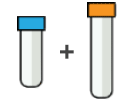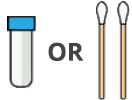Patient Testing Options
Learn about our services
Community
- Patient feedback
- Athletes
- To Pay Bill, Please Call
1-800-US-ALCAT (1-800-872-5228) Ext. 809
Test Directory
Provider Support
- Insurance Information & Verification
- Patient Test Results Consultation
- New Provider Portal
- Migrate your old portal account, create a new account, or call
1-800-US-ALCAT (1-800-872-5228) Ext. 809 to make payments
Cell Science Systems Corp. is a speciality clinical laboratory that develops and performs laboratory testing in immunology and cell biology supporting the personalized treatment and prevention of chronic disease.
Cell Science Systems, Corp. operates a CLIA certified laboratory and is an FDA inspected and registered, cGMP medical device manufacturer meeting ISO EN13485 standards.
Cell Science Systems Corp.
Phone: (800) US ALCAT (872-5228)
Fax: (954) 428-8676
Email: info@alcat.com
Cell Science Systems GmbH Alcat Europe
Phone: +49 (0)331 740088-0
Fax: +49 (0)331 740088-29
Email: info@alcat-europe.com
Alcat Thailand co., ltd..
Phone: +66 (0)2-339-3840-1
Email: info@alcat.co.th
Looking for something else?
See our full contact page here!
Newsletter Signup
Stay up to date on emerging scientific research and latest content from Cell Science Systems.









 Option 1: Celiac, IBS, and Crohn’s Array (CICA)
Option 1: Celiac, IBS, and Crohn’s Array (CICA)
 Option 2: CICA – Genetic Only
Option 2: CICA – Genetic Only Option 3: CICA – Serologic/Antibody Only
Option 3: CICA – Serologic/Antibody Only